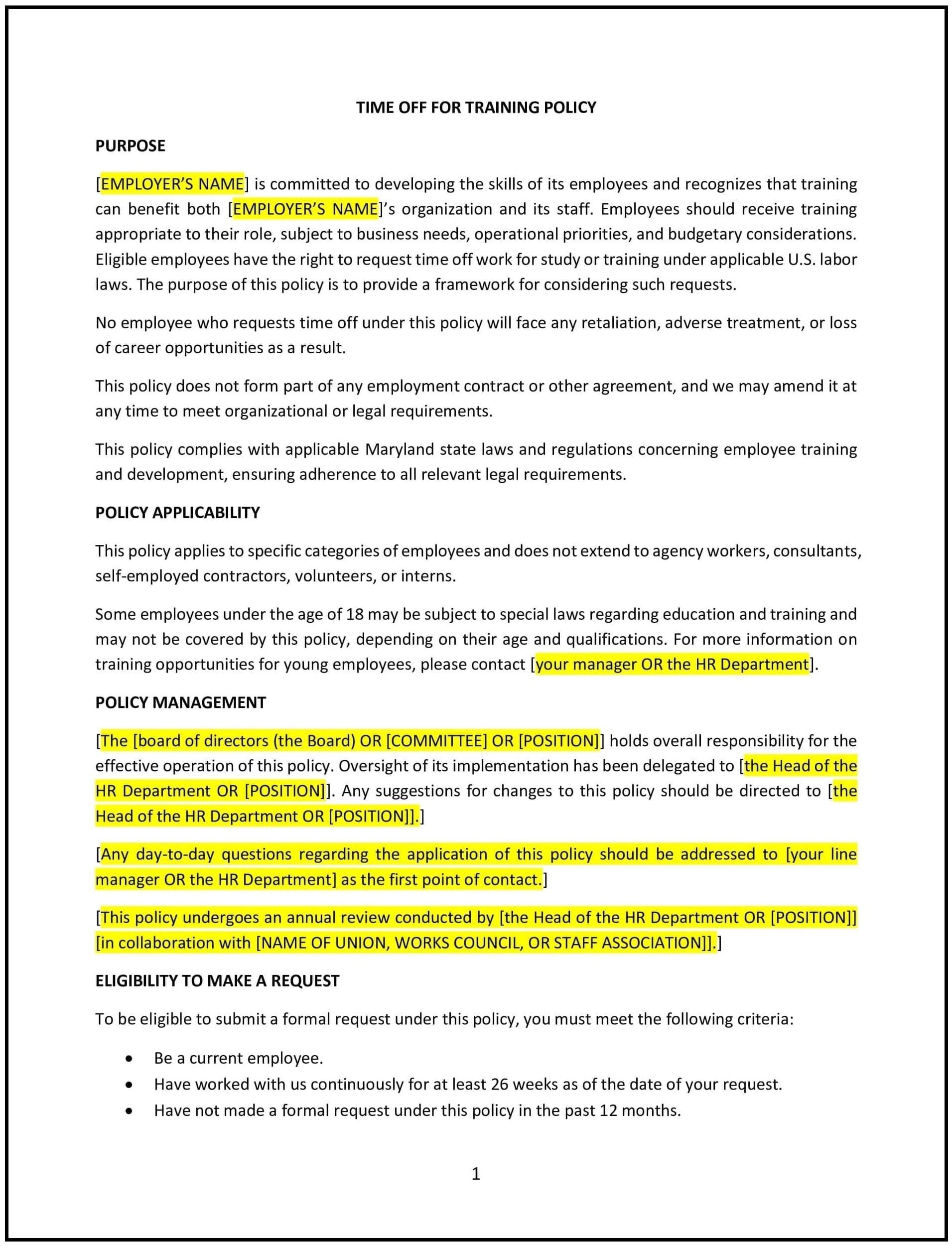Time off for training policies (Maryland): Free template
Got contracts to review? While you're here for policies, let Cobrief make contract review effortless—start your free review now.

Customize this template for free
Time off for training policy (Maryland)
This time off for training policy is designed to help Maryland businesses support employee development by providing time off for job-related training, education, or skill-building activities. It outlines eligibility, the process for requesting time off, and how businesses can balance training opportunities with operational needs.
By adopting this policy, Maryland businesses can invest in employee growth, improve skill sets, and foster a more competent and engaged workforce.
How to use this time off for training policy (Maryland)
- Define training eligibility: Specify which employees are eligible for time off for training, including full-time, part-time, and temporary workers, and what type of training qualifies (e.g., professional development, certifications, workshops).
- Establish approval procedures: Outline how employees should request time off for training, including advance notice requirements, documentation (such as course enrollment or training schedules), and the process for approval.
- Specify paid vs. unpaid leave: Indicate whether time off for training is paid or unpaid and if benefits such as health insurance will continue during the training period.
- Set limits on training time: Define the maximum number of hours or days that employees can take off for training within a certain period (e.g., annually or per quarter).
- Address business needs: Ensure that training leave is coordinated with business needs, including arranging coverage for the employee’s role during the absence.
- Reflect Maryland-specific considerations: Ensure the policy aligns with Maryland labor laws regarding time off for education and job training, as well as any industry-specific requirements.
Benefits of using this time off for training policy (Maryland)
Implementing this policy provides Maryland businesses with several advantages:
- Enhances employee skills: Encourages employees to improve their knowledge and capabilities, benefiting both individual performance and company growth.
- Promotes professional development: Shows a commitment to employee development and career advancement, which can boost morale and retention.
- Increases productivity: Employees who receive training are often more efficient, effective, and engaged in their work.
- Supports a culture of learning: Fosters an environment where continuous learning is valued, keeping the business competitive and innovative.
- Aligns with Maryland regulations: Helps businesses comply with any state-specific training requirements for certain industries.
Tips for using this time off for training policy (Maryland)
- Communicate the policy: Ensure all employees are aware of the policy, including during onboarding and through regular reminders about training opportunities.
- Plan for coverage: Work with employees to plan for coverage during their training period to minimize disruptions to business operations.
- Offer flexible options: Provide employees with the option to attend training during work hours, or explore alternatives like online training or flexible schedules.
- Track training progress: Maintain records of training activities to evaluate their effectiveness and ensure employees are taking advantage of development opportunities.
- Review regularly: Update the policy as necessary to reflect changes in Maryland laws or business priorities related to training and development.